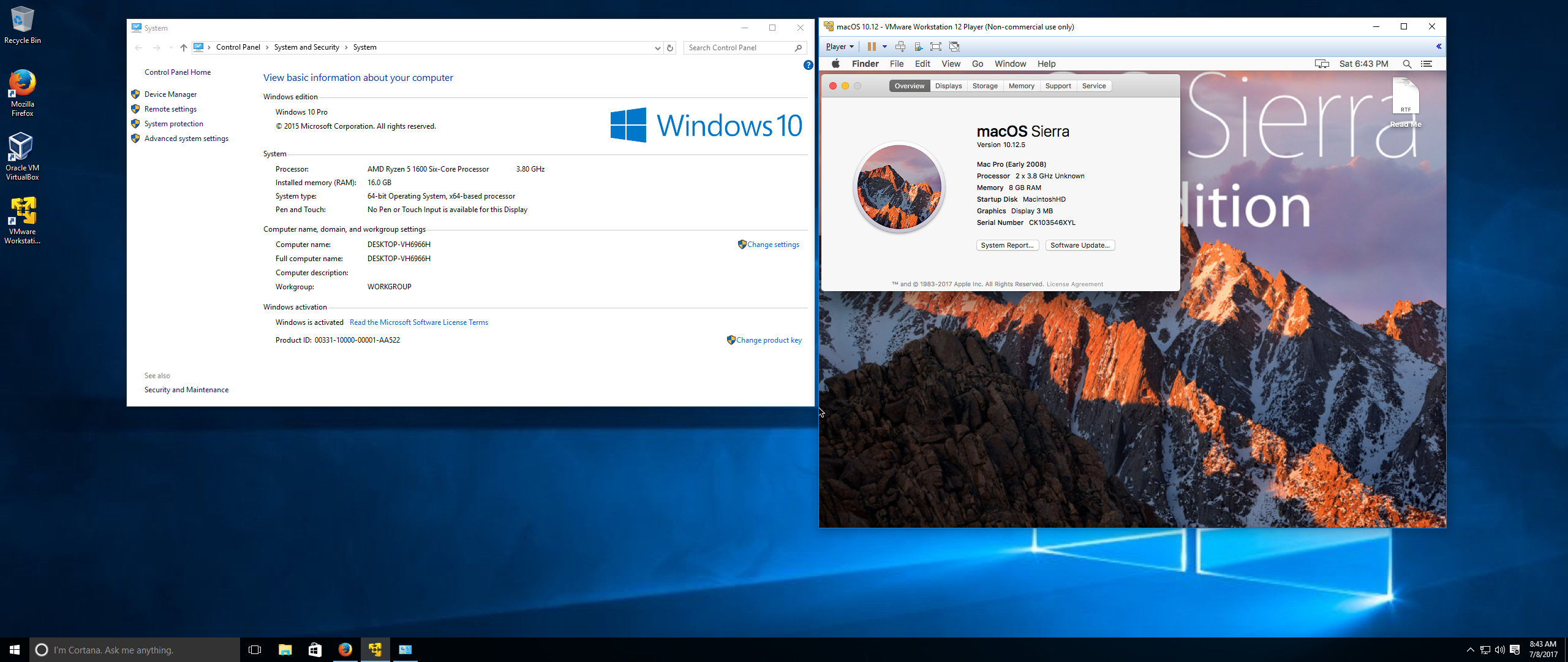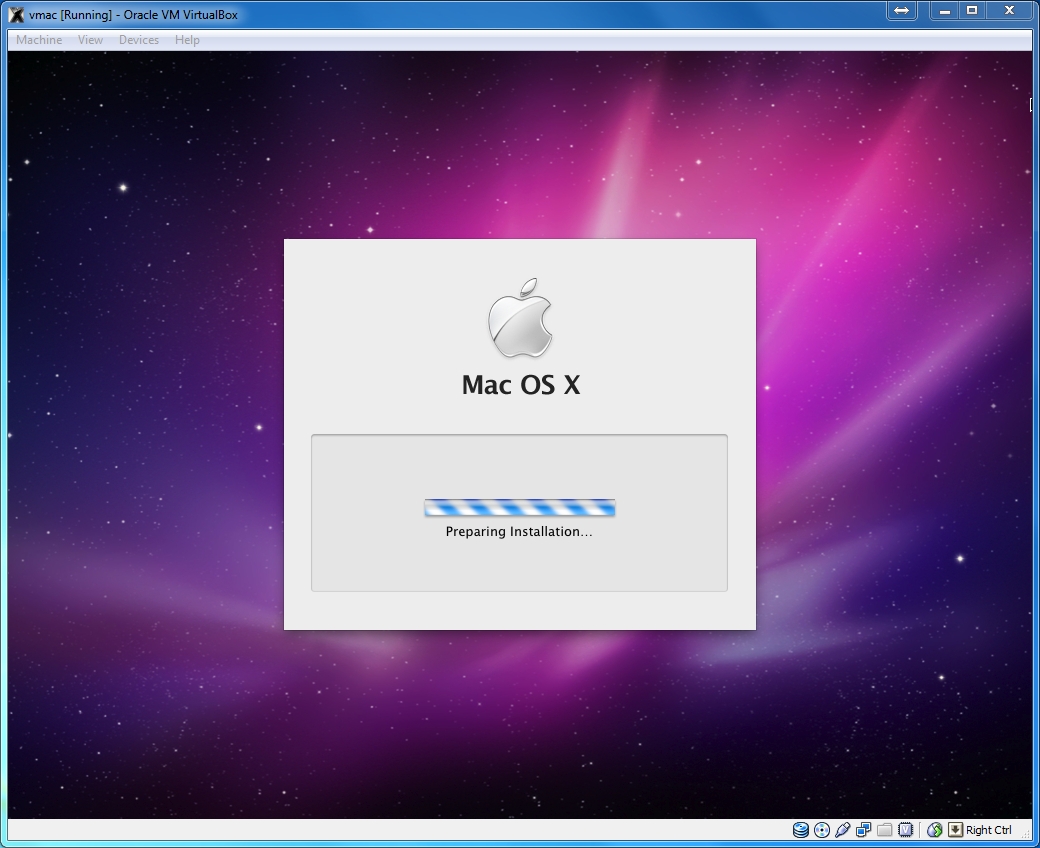- Install Macos Big Sur On Virtualbox
- Virtualbox For Mac Os Big Sur Online
- Virtualbox On Big Sur
- Does Virtualbox Support Mac Os Big Sur
- Virtualbox For Macos Big Sur
Starting macOS Big Sur with the older version of the Mac Operating system was a bit different, but with new macOS Big Sur still, it’s easy to set it up. Open the VirtualBox app then click the Start button. A black screen with a few yellow & white text will appear on the screen. Virtualbox VM crashes on Mac OS Big Sur host / MacOS, OS / Big Sur, Virtualbox / By Shuang H After I upgraded my Mac OS from version 10.15.7 to.
Just like installing macOS Catalina on VirtualBox which requires VirtualBox Boot Image file, installing macOS Big Sur also requires files macOS Big Sur VirtualBox boot image file. If you’ve been searching for macOS Big Sur installation or macOS Big sure VirtualBox boot image file, no worries because we have both of them. More importantly, they are working and checked that requires no work except using it, so let’s do this. But first, we will take a look at the highlights of macOS Big Sur briefly so here it is.
How to Install macOS Big Sur on VirtualBox on Windows? 8 Step Guide How to Create macOS Big Sur Bootable Installer for Clean Installation: 2 Easy Steps (MAC only) Conclusion: Install macOS Big Sur on unsupported Mac. I hope this guide on how to Install macOS Big Sur on unsupported Mac was useful for you. In VirtualBox, open Devices Network Network Settings Advanced Port Forwarding and specify Host IP = 127.0.0.1, Host Port 2222, Guest IP 10.0.2.15, Guest Port 22; On the Host OS, run the following command sftp -P 2222 user@127.0.0.1; if you prefer a graphical interface, you can use FileZilla. MacOS Big Sur for Virtual Machines دانلود macOS Big Sur 11.1.0 for VMware شامل فایل آماده جهت استفاده در مجازی ساز VMware و Virtualbox برای تجربه استفاده مکینتاش در ویندوز میباشد. Mac OS که مخفف Macintosh Operating System است، نام تجاری یک سری از سیستمعاملهای دارای.
macOS Big Sur Highlights
macOS has had a long history, stretching back to 1984 with the original classic operating system. It set a new standard for computing by popularizing the graphical user interface and mouse. Since that initial release, macOS has gone through many iterations, but this video isn’t about the operating system’s history, that’ll be for another time. Today, I’m going to explain the significance of the most recent macOS version called Big Sur, to be released sometime this fall. It marks a completely new era for the Mac, and lays the groundwork for future models featuring Apple’s custom-designed ARM processors that could completely change the way Macs are used.
Now in 2001 Steve Jobs introduced Mac OS X and told us it would serve as the Mac’s operating system for the next two decades. And he was pretty much spot on. Mac OS X ended up featuring sixteen different iterations over the span of nineteen years. The last being Mac OS 10.15 Catalina in 2019. So the big question on everyone’s mind was, what comes next? If Apple created a Mac OS 11, what groundbreaking changes would be made to begin a completely new era for the Mac? Well, there are quite a few new additions to Big Sur that not only help modernize the Mac, but redefine its position in Apple’s ecosystem.
Download macOS Big Sur VirtualBox Boot Image File
Like macOS Catalina, macOS Big Sur will require VirtualBox Boot Image file, so here’s the file. This is what we have created and made for you so you can install macOS Big Sur on VirtualBox. If you don’t know here’s how to [Ultimate Guide] Install macOS Big Sur on VMware on Windows PC.
Install Macos Big Sur On Virtualbox
Also check: [Ultimate Guide] Install macOS Big Sur on VMware on Windows PC
So here’s the file
Download macOS Big Sur VirtualBox Boot Image File:This file is created and uploaded on Google Drive completely for free so if you’d like to get the file simply head to the file by clicking on it and right-click on the file and download it.
See More like this:
But a lot has changed since then, and I think Big Sur is the beginning of the change Apple needed to make in order for the Mac to remain a relevant and logical part of their ecosystem.
Get the Latest Version macOS Images by Joining our Patreon
Virtualbox For Mac Os Big Sur Online

Get without a password and easy to access and the latest version of macOS files on our Patreon.
If there’s some problem with downloading, you may fix it with the steps below.
If you are interested to install macOS High Sierra on VirtualBox and VMware Workstation on Windows PC. Then you have to download the VMDK File from the below-given link.
macOS Big Sur Features & Updates
Interface
The first, being its interface. With the growing popularity of mobile devices like the iPhone and iPad, Apple began borrowing elements of the iOS interface as far back as 2014 with macOS Yosemite. It replaced skeuomorphic design elements with flat ones, featured translucent windows and blur effects to establish depth, and even had a thinner system typeface just like iOS 7. But a traditional Mac, which was a much different experience than a touch-based iPhone or iPad. But take a look at what’s happening with Big Sur. Sure, it features the biggest user interface overhaul since the original version of Mac OS X. But this new look isn’t superficial.
Adding Control Center

The reason why Apple had to change the design of Big Sur, is because of their changes to functionality. Control center was added, which changes the way users interact with their menu bar. Notification Center was updated, giving it the same exact functionality and appearance as on iOS and iPadOS. And look at the new window design of something like Finder, which looks strikingly similar to the Files app from iPadOS 14. But this is only the beginning.

The shape of almost every icon in Big Sur has been changed to a rounded square, just like what you’d find on iOS. And Apple has even made it possible to run iOS apps on their upcoming ARM Macs, without developers having to do any extra work. And that may sound familiar because that’s exactly what happened when the original iPad was released. Sure, developers could optimize their apps to take advantage of the device’s larger display, but they didn’t have to, since the iPad was compatible with every single iPhone app. And consider how the iPad has changed over the last decade.
Initially, it was just an oversized iPod that ran the same operating system as every other iOS device. But eventually, it received so many exclusive features optimized for its larger form factor, that Apple had to differentiate the iPad’s operating system from the iPhone. That’s why today we have iOS and iPadOS. But when it comes to the Mac, I think the reverse will happen. Apple will continue aligning it closer to iPadOS over the coming years, so that users can jump between their iPhones and Macs with the same continuity and seamlessness as switching between their iPhones and iPad.
Aligning iOS with macOS

Virtualbox On Big Sur
Does Virtualbox Support Mac Os Big Sur
macOS Big Sur on VirtualBox – Full Screen Resolution
Battery Performance
Virtualbox For Macos Big Sur
A big reason why the iPad was so popular, was that it looked and worked exactly like the iPhone, which many people already had. And the Apple Watch featured an operating system that was essentially a miniature version of iOS. So it too was easily understood by existing Apple users.
But the Mac has always felt a bit out of place. Especially when compared to other products in Apple’s ecosystem. And I think it’s because the Mac was created long before the mobile device era. Ever since the iPhone, Apple products like the iPad, Apple Watch, and Apple TV have been created in its same image. With an iOS-inspired operating system, a custom ARM chipset, and optimized compatibility. But when it came to the Mac, it featured an operating system created in 2001, a processor provided by third party companies like PowerPC and Intel. And a focus on one-way compatibility for devices like the iPod. Since, during that time, the Mac served as a hub for your mobile devices.
